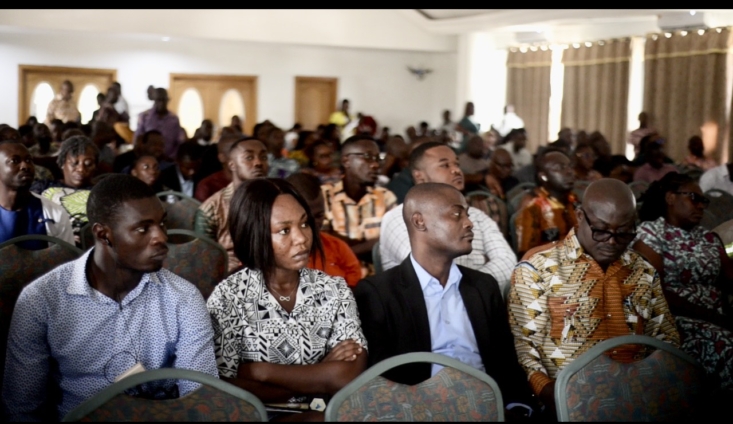About 15.2% of female adolescents in Ghana aged 15-19 have ever been pregnant, underscoring the prevalence of teenage motherhood.
The prevalence within the age range is almost one-fifth of the global prevalence.
The regional disparities are striking, with teenage pregnancy rates ranging from 6% in Greater Accra to 26% in the Savannah Region.
The alarming prevalence of teenage motherhood recorded a decline from 19% to 11% since 1988.
This was revealed at a zonal dissemination of the Ghana 2022 Demographic and Health Survey.
These statistics highlight a complex landscape of adolescent pregnancy and motherhood with significant regional variations.
The Ashanti region is the second highest with 24% of adolescent pregnancies.
The dissemination of the 2022 Demographic and Health Survey assembled health expects, district and assembly health executives to discuss the implications of the health survey numbers.
Head of the Social Statistics Section at the Ghana Statistical Service, Sarah Woode explained "It is not the best that within that age period we are having as many young women being pregnant."
"This is a worrying situation that policymakers should do something about,” she said.

The Ghana 2022 Demographic and Health Survey is a population-level survey designed to monitor and assess progress in the utilization and management of healthcare services across all 16 regions of the country.
The five-week dissemination exercise focused on data generated from 15 target areas including, child health, malaria, Infant and Child Mortality, HIV/AIDS and Health Insurance.
Other exploits include Marriage and Sexuality, Fertility, Family Planning, Household Water and Sanitation, Women's Empowerment, Domestic Violence and Agency, Consent and Coercion.
Director of Regional Offices of the Ghana Statistical Service, Emmanuel George Osei, says the report will provide a vital source of information for the Ministry of Health, enabling the measurement of outcomes and impacts of health programs.

“Health facilities use our data a lot. This guides them in their policy evaluation and formulation regarding health issues in the country. The Ghana health service and the health ministry can use this in the light as well,” he said.
Latest Stories
-
Paris 2024: Opening ceremony showcases grandiose celebration of French culture and diversity
2 hours -
How decline of Indian vultures led to 500,000 human deaths
3 hours -
Paris 2024: Ghana rocks ‘fabulous fugu’ at olympics opening ceremony
3 hours -
Trust Hospital faces financial strain with rising debt levels – Auditor-General’s report
4 hours -
Electrochem lease: Allocate portions of land to Songor people – Resident demand
4 hours -
82 widows receive financial aid from Chayil Foundation
4 hours -
The silent struggles: Female journalists grapple with Ghana’s high cost of living
4 hours -
BoG yet to make any payment to Service Ghana Auto Group
4 hours -
‘Crushed Young’: The Multimedia Group, JL Properties surprise accident victim’s family with fully-furnished apartment
5 hours -
Asante Kotoko needs structure that would outlive any administration – Opoku Nti
5 hours -
JoyNews exposé on Customs officials demanding bribes airs on July 29
6 hours -
JoyNews Impact Maker Awardee ships first consignment of honey from Kwahu Afram Plains
7 hours -
Joint committee under fire over report on salt mining lease granted Electrochem
7 hours -
Life Lounge with Edem Knight-Tay: Don’t be beaten the third time
7 hours -
Pro-NPP group launched to help ‘Break the 8’
8 hours

